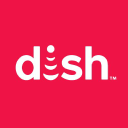Revisiting Dish Network’s Wireless Ambitions
Last week Dish Network (NASDAQ:DISH) raised $2.3 billion in debt meant for general corporate purposes which may also include wireless spectrum-related transactions. [1] It won’t be surprising to see Dish Network acquiring some more wireless spectrum either directly or indirectly by acquiring a stake in the companies that own it.
The company has been amassing spectrum for a while and intends to build a nationwide wireless service that could directly compete with the biggest telecom companies such as Verizon (NYSE:VZ) and AT&T (NYSE:T). Towards the end of 2012, Dish Network won FCC approval to use its spectrum for a ground-based cellular network. A few months ago, it also made an aggressive bid to acquire Clearwire. This indicates that the company just doesn’t want to build a wireless network, but desires to become one of the major players that can challenge the existing telecom giants. It is unlikely that Dish’s bid will be approved given that Sprint already holds a 50% stake in Clearwire. However, the move would certainly help Dish in negotiating a potential partnership with Sprint or other carriers as well as lift the value of its spectrum.
Why is Dish Network doing all this?
- With Echostar Merger Approaching, What To Expect From Dish’s Q3 Results?
- Can Dish Network Stock Return To Its Pre-Inflation Shock Highs?
- Dish Stock Has Big Upside Potential To Its Pre-Inflation Peak
- How Will The Cyber Attack Impact Dish’s Q1 Results?
- Is Dish Network Stock A Buy Despite Many Headwinds?
- Will Dish Network Stock Continue To Underperform?
The company ultimately wants to compete better in the saturated U.S. pay-TV market by arming itself with a viable bundling option. Unlike its cable counterparts, Dish Network has focused purely on pay-TV rather than bundling broadband and telephone services with it. It hasn’t been able to match the performance of its satellite rival DirecTV (NASDAQ:DTV) as the latter has a more sticky subscriber base and some exclusive services such as NFL Sunday Ticket. Let’s look at how Dish can add value to its stock with its wireless assets.
See our complete analysis for Dish Network
What If Dish Sells The Spectrum?
There is a looming spectrum crunch in the U.S. wireless industry given the increasing data needs of mobile customers. Growth in smartphones and tablets along with improved wireless data speeds has stimulated data usage, and wireless carriers have been investing in their infrastructure to address this need. As a strategic and tactical move, Verizon bought AWS spectrum owned by some cable companies last year for $3.9 billion. [2] This essentially indicates that Dish is sitting on a gold mine and the value of its spectrum will only go up.
Therefore, one option for the company is to sell the spectrum at a significant profit and invest the proceeds in its current business. This profit could be substantial enough to be invested in new satellite launches or increase their capacity to support future HD programming. Additionally, the investment could be made in Blockbuster’s content to make it more lucrative to subscribers. This can help the company improve the value of its service and better compete with bundled service providers such as the cable and telecom companies. Dish certainly lacks the bundling advantage and the loss of certain key distributors to DirecTV hasn’t helped either.
What If Dish Builds A Wireless Service?
If Dish Network eventually builds a wireless service, it can either use a third party infrastructure and host its spectrum on that, or build everything on its own from scratch. The latter option is more risky since Dish has no experience in this field and additional capital expenditures might lead to investor skepticism. Let’s assume that Dish opts to partner and host its network on a third-party infrastructure. Dish might enter a revenue or profit sharing agreement with the company and market the wireless service under its own brand name.
What could be the pricing?
The pricing can be estimated by looking at what ViaSat is offering. ViaSat offers satellite broadband and charges $50 per month for 12 Mbps service with 7.5 GB data cap. [3] For 25 GB data cap, the pricing is much higher at $130 per month. [3] However, Dish Network’s wireless service will be based on a hybrid satellite-terrestrial network and therefore the pricing could be different. Cable companies charge, on average, $45 per subscriber per month for broadband services. [4] We believe that Dish Network’s average broadband pricing is likely to be higher than that of cable companies due to wireless accessibility. If we assume $50 to be benchmark “monthly revenue per broadband subscriber” for Dish Network’s service although bundling with its pay-TV service is likely to lead to lower pricing. Dish could earn an incremental $2 billion in revenues if it can gain 3.5 million broadband subscribers (25% of its current pay-TV subscriber base). However, the company will need to share a notable portion of these profits with the infrastructure provider, leading to lower margins on broadband.
The value of such an approach not only comes from incremental profits but also from the fact that the bundling of satellite broadband could lead to better pay-TV subscriber trends and help Dish compete against rival DirecTV.
Our price estimate for Dish Network stands at $38, implying a premium of about 5% to the market price.
Understand How a Company’s Products Impact its Stock Price at Trefis
Notes:- DISH Network Places Offering of $2.3 Billion in Senior Notes, Dish Network Press Release, Apr 3 2013 [↩]
- What $3.9 billion Verizon/cable spectrum deal means to you (FAQ), CNET News, Aug 25 2012 [↩]
- ViaSat prices satellite broadband plans, calls them Exede, The Verge, Jan 20 2012 [↩] [↩]
- Estimated from metrics and revenues provided in Comcast & Time Warner Cable’s SEC Filings [↩]
